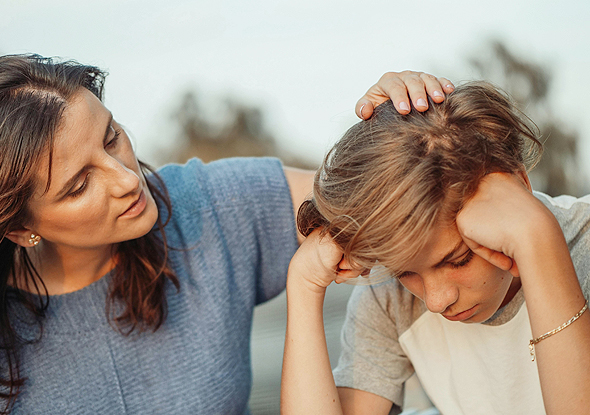Helping Kids Cope When You’re Coping Too: Mental Health Strategies for Divorcing Parents

- This blog contains affiliate links, which we may receive a commission for purchases. The decision is yours, whether or not you decide to buy.
Divorce is often described as one of life’s most stressful transitions. For parents, it brings the challenge of navigating emotional upheaval while trying to shield children from its impact. Research shows that the way parents handle divorce has a greater influence on a child’s long-term wellbeing than the separation itself. In other words, how you cope matters as much as what you say.
This article shares practical mental health strategies to help parents manage their own stress while supporting their children’s emotional strength and stability during divorce.
The Double Challenge: Supporting Children While Healing Yourself
Children look to their parents for security, consistency, and emotional cues. When parents are overwhelmed by stress, anxiety, or sadness, children may feel uncertain and vulnerable. According to a 2022 study published in the Journal of Family Psychology, children whose parents displayed emotional stability and clear communication reported 42% lower levels of stress symptoms during divorce compared to children whose parents had frequent emotional outbursts.
Balancing your own healing with your child’s needs requires intentional steps:
- Acknowledge your emotions without oversharing Children should not be burdened with adult worries, but it is healthy for them to see that sadness, frustration, or fatigue are natural responses.
- Model healthy coping skills Exercise, journaling, mindfulness, and seeking therapy show children that self-care is both normal and necessary.
Create stability in routines Mealtimes, bedtime rituals, and consistent schedules help children feel secure, even when family structures are changing.
Communication That Protects Mental Health
The way you talk about divorce shapes how your child understands and processes it. Effective communication strategies include:
- Keep messages clear and age-appropriate: Avoid unnecessary details or blaming language.
- Reassure consistently: Remind children that they are loved and that the divorce is not their fault.
- Encourage expression: Let children talk openly about fears or sadness without judgment.
Even brief check-ins such as, “How are you feeling about things today?” give children valuable space to share their thoughts.
Managing Your Own Stress to Support Theirs
It is not selfish to focus on your wellbeing; it is essential. When parents regulate stress, they provide a calmer foundation for their children.
- Consider: Counseling or therapy Talking with a mental health professional gives you tools to manage intense emotions.
- Support networks Friends, family, or divorce support groups provide relief and perspective.
- Physical health Exercise, balanced meals, and sleep are protective factors against depression and anxiety.
By addressing your own mental health, you reduce the risk of children internalizing stress and insecurity.
Frequently Asked Questions
Q1: How can I protect my child’s mental health if I feel emotionally unstable?
Even if you are struggling, you can protect your child by maintaining predictable routines, keeping conflict away from them, and seeking outside support for yourself. Children feel safer when parents are consistent, even if not perfect.
Q2: Should I talk to my child about my feelings during divorce?
Yes, but carefully. Share emotions in a balanced way. For example: “I feel sad today, but I’m okay and I’ll take care of us.” Avoid sharing financial stress or conflict with your ex-partner.
Q3: What signs of stress should I watch for in my child?
Look for changes in sleep, appetite, school performance, or social withdrawal. Younger children may regress (bedwetting, clinginess), while older children may show irritability or risk-taking behavior. If symptoms persist, consider professional support.
Final Thoughts
Divorce affects both parents and children, but it does not have to define the future. By caring for your own mental health and creating steady routines, you provide the foundation your child needs to feel safe and resilient. Small, consistent efforts from open conversations to modeling healthy coping can ease stress for both you and your child. The journey is not about being perfect. It is about showing your child that even in times of change, stability and emotional strength can be nurtured at home.
Disclaimer: This blog post is for informational purposes only and is not a substitute for professional advice or treatment. The author and publisher do not guarantee the accuracy or completeness of the information and are not liable for any damages resulting from its use. Please consult a qualified professional for advice specific to your situation.
PHOTO CREDIT: MART PRODUCTION
You may also like
Books
Buy now from Amazon
- The Power of Positive Energy
- Manifest: The Sunday Times bestseller that will change your life
- Parenting Apart
Podcast
Kate Daly is co-founder of amicable and host of the The Divorce Podcast. Kate created The Divorce Podcast to discuss and demystify divorce, separation and co-parenting in the UK. In each episode, Kate is joined by experts in their field to explore divorce and separation from every angle.
Articles
- Divorce Mediation Explained
- 7 Things You Should Think About Before Filing For Divorce
- Is Online Mediation Right For You?
Videos
Practical advice and tips from professionals on what to do with issues and challenges around divorce from parenting to finance.
Events
Practical tips & advice designed to help people going through divorce, whether online or in person.
Useful links
Here's a selection of organistaioins from parenting to finance to help you with your divorce.
Health professionals
Related Posts
-

How Divorce Affects Digestion and Mood: The Gut-Brain Connection
-

Gardening Through Divorce: Finding Healing And Growth In The Garden
-

Eating Your Way Through Divorce: A Guide To Nourishing Your Body And Mind With Healthy Foods
-

The Difficult Decision To Divorce A Loved One With Dementia
-

How To Look After Your Mental Health Before, During And After Divorce



.jpg)
.jpg)



.jpg)

